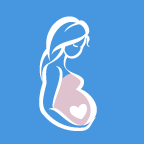Donor Egg Recipients
Donor Egg Recipients
Donor egg programs have made it possible for a couple to have a child that, many times, holds half of their genetic fingerprint, and it also allows the woman to carry the pregnancy herself. Many times it is seen as an alternative to adoption.
There are several reasons why a woman would seek to have donor eggs, including:
- Premature ovarian failure
- Poor quality eggs
- Diminished quantity of eggs
- Advanced reproductive age
- Menopause
- Genetic abnormalities
- Chemotherapy or radiation treatment
To begin the process, the patient (recipient) selects a donor. This can be a family member, friend, or an anonymous volunteer who has been screened by our staff. Then, the egg donation process begins whereby the donor produces and donates eggs to the recipient. The eggs are then fertilized and the resulting embryos are placed in the uterus of the recipient to continue normal fetal development.
The egg donor uses fertility drugs to stimulate the development of multiple eggs, and the recipient takes estrogen and progesterone to prepare the uterus for embryos to be implanted. Many recipient couples receive a large number of embryos through egg donation, which then allows for freezing and the possibility of future use.


